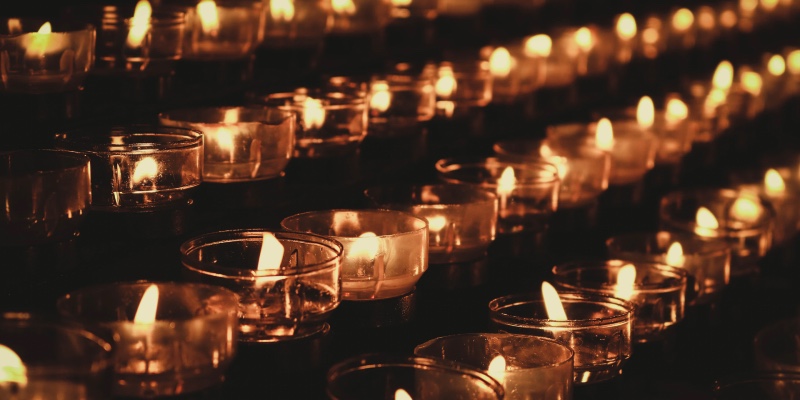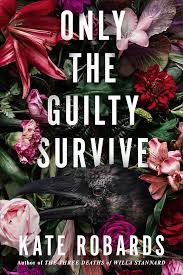Cults, often concealed yet surprisingly pervasive, are inherently dysfunctional. Estimates suggest there are as many as 10,000 cults in the United States today. Cults are not a far-fetched concept—they are closer to home than most realize.
While it would be easy to dismiss those immersed in these groups as gullible or weak-minded, that’s not the case. There’s a widespread misunderstanding of cult members and victims, but when you understand the circumstances that draw people to these groups, you begin to feel empathy and an eerie sense of identification. Because the people who join cults are no different from you or me, and cults may be difficult to recognize at first.
In my new thriller Only the Guilty Survive, I explore the minds of a cult leader, loyalist, and defector through three characters that each offer a unique perspective on the complexities of cult life. Only the Guilty Survive is a dark story that raises unsettling questions about guilt, self-justification, and blame.
Long before I began researching for my book, I was captivated by books about cults. The following five books span both fiction and nonfiction, shedding light on the spectrum of cult dynamics—from the seductive allure of communal living to the chilling influence of charismatic leaders. They explore the psychological mechanisms behind indoctrination, the haunting aftermath of cult experiences, and the enduring questions of guilt and blame that permeate such narratives.
After all, when it comes to cults and communes, reality often proves stranger than fiction.
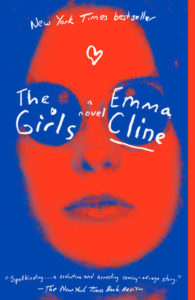
The Girls – Emma Cline
In The Girls, Evie Boyd, a bored 14-year-old in California, leaves home to join a cult reminiscent of Charles Manson’s “family.” Even if you’re largely unaware of the actions of Manson and his followers in the late sixties, you’d likely pick up on how closely the fictional storyline is modeled after the infamous group and its crimes. Emma Cline’s main character is a groundless teen plagued by adolescent problems, who is sucked into the orbit of Suzanne, an alluring member of a group of girls who worship an egomaniac leader named Russell and live at a ramshackle ranch. While Cline doesn’t recreate the actions of the Manson cult, the trajectory the story follows is reminiscent of reality, especially when the girls break into a home—the calling card of Manson’s followers. There’s even a famous rock musician offering Russell a record deal—a detail similar to the real-life connection between Manson and Beach Boy Dennis Wilson. The story is narrated by middle-aged Evie in the present time, allowing the reader to grasp both the emotions of a vulnerable teen as she recalls the events and the perspective of someone who’s spent her life analyzing her role in the events that took place. While the story is very much linked to Manson and his family, it’s Cline’s vivid writing style that sets The Girls apart.

The Last Housewife – Ashley Winstead
I discovered The Last Housewife long after I wrote Only the Guilty Survive, and I was surprised to find some similarities. (A character named Laurel! A podcaster!) This novel has a very different take on cults, though. It focuses on a secret society comprised of influential, rich men manipulating women. It’s reminiscent of NXIVM, a sex cult made up of the powerful elite that abused members physically and emotionally while committing crimes ranging from trafficking to wire fraud. The book’s main character, Shay, recounts her experience with a controlling older man named Don to a podcaster following the death of her friend Laurel. By integrating podcast transcripts, Ashley Winstead brings the reader into the past to show the forces that shaped Shay while she digs into the mysterious circumstances of her former roommate’s apparent suicide. The Last Housewife is a dark psychological thriller that explores misogyny, sexual violence, trust, and manipulation.
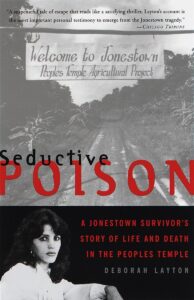
Seductive Poison: A Jonestown Survivor’s Story of Life and Death in the Peoples Temple – Deborah Layton
Seductive Poison is a firsthand account of what happened in Jonestown, written by survivor Deborah Layton. Layton takes the reader on a journey from her early years to her indoctrination into Jim Jones’s People’s Temple and her eventual defection from the community in Guyana. Layton was one of Jones’s high-level members, a trusted member of his inner circle. Her honest, vivid memoir is a fascinating exploration into the shadowy world he built and the lies he told his followers, but importantly, it’s relatable. You can understand how she was seduced by Jones; Layton breaks down the barrier between “that could never happen to me” and “I can see how that could happen to anyone.” She details her escape from the jungle commune, leaving her mother, brother, and friends, shortly before the infamous Jonestown massacre in 1978. I drew from Layton’s accounts of her experiences when crafting the character of Lollie in Only the Guilty Survive. Like Layton, Lollie has become disillusioned with the leader she has followed for years and must plot how she can safely escape her home and leave her found family behind.
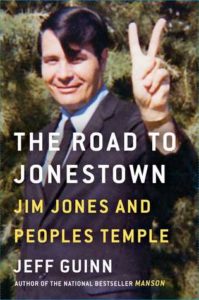
The Road to Jonestown: Jim Jones and Peoples Temple – Jeff Guinn
While Seductive Poison is a memoir by a Jonestown survivor, The Road to Jonestown chronicles the life and death of Jim Jones, the charismatic leader of the People’s Temple. Author Jeff Guinn examines Jones’s early years, his involvement in politics and the church, and how he grew into a prominent leader before relocating his followers to a remote compound in the Guyanese jungle. Comprehensive and eye-opening, this biography takes you on a journey to understand the man behind the events that ultimately transpired in Jonestown. It’s as much a historical book as a psychological profile, and just as I think it’s important to understand why members of the People’s Temple chose to follow him, it’s equally important to understand the circumstances that shaped the leader from a young boy growing up in Indiana into one of the most notorious cult leaders in history. Trying to understand Jim Jones was a major part of my research for my novel’s leader, Dominic Bragg, a complicated, flawed, and magnetic character.
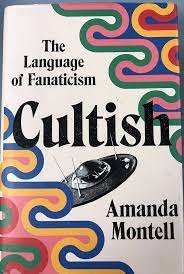
Cultish – Amanda Montell
Author Amanda Montell is a linguist, giving her a unique perspective to examine the role of language as a form of cult influence and power. She highlights a variety of cultish groups, from the obvious (Heaven’s Gate) to the unlikely (Instagram gurus and Peloton instructors). What’s fascinating is the thread tying all of these groups together: a command of language. While it could be easy to dismiss stereotypical cult followers as foolish, naïve, or susceptible, this book turns that notion on its head and has you examining all the ways you fall under the influence of people, groups, churches, or companies, simply through a powerful command of verbal elements designed to both create camaraderie and separate individuals. Jargon, acronyms, mantras: these are the elements of language that form a foundation on which cults are built. It’s interesting to understand the role and influence of language, and this was especially important to understand when I wrote scenes in which my novel’s fictional cult leader spoke to his followers. True to life, his words and demeanor went a long way to building trust and belonging among his followers.
***

